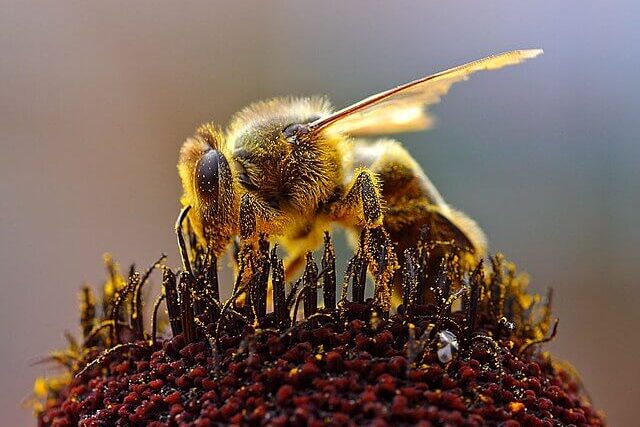
Use of pesticides that harm bees received emergency authorisation.
The use of a pesticide that is prohibited due to its potential harm to bees has once more received emergency authorisation from the UK government.
A neonicotinoid can be used on sugar beet seeds to protect the crop from an especially harmful virus that is spread by aphids.
The authorisation was granted in defiance of the recommendations of a separate panel of pesticide specialists.
The action was described as “incredibly brazen” by the environmental group Friends of the Earth.
However, the decision was welcomed by NFU Sugar board chairman Michael Sly, who described himself as “relieved.”
“The British sugar beet crop continues to be threatened by virus yellows disease, which in recent years has caused crop losses of up to 80%. The home-grown sugar industry is working hard to find viable, long-term solutions to this disease,” he said.
The pesticide, thiamethoxam, a seed treatment, could only be used if independent modelling predicted a yellows virus incidence of at least 63%, according to the Department for Environment, Food, and Rural Affairs (Defra).
It stated that other conditions will minimise environmental risks if that threshold is met and the pesticide is utilized.
The use of neonicotinoid pesticides is still prohibited in general.
The emergency authorisation, according to Farming Minister Mark Spencer, was granted after “careful consideration” and as “a necessary measure to protect the industry.”
The Health and Safety Executive (HSE), the independent UK Expert Committee on Pesticides (ECP), and Professor Gideon Henderson, Defra’s Chief Scientific Adviser, provided guidance for the decision.
However, the ECP did not support the authorisation, saying: “In light of the risk assessment conducted, a reduction in survival of honey bees and impacts on homing flight ability (which also influences survival of foragers) could occur.”
Bees foraging on the pollen and nectar of flowering crops planted in fields following the treatment of sugar beet posed “a potential concern,” according to the HSE.
But Professor Henderson said that could be fixed by requiring a minimum of 32 months before planting a flowering crop.
In his advice, he also said: “There is clear and abundant evidence that these neonicotinoids are harmful to species other than those they are intended to control, and particularly to pollinators, including bees.”
The Minister acknowledged that there was still “a degree of uncertainty in relation to the risks to bees” when granting authorisation.
This is the third year that the government has granted emergency authorisation for the pesticide, despite the fact that it is typically not permitted for use.
Friends of the Earth’s Sandra Bell characterised the decision as “incredibly brazen,” adding, The government has acted in direct opposition to its own scientific advisors, which has the potential to have devastating effects on bees and other essential pollinators.
“The health of us all and the planet depends on their survival. The government must fulfil its duty to protect wildlife and keep pesticides off our crops for good.”
The UK’s decision comes just a few days after the European Union’s Court of Justice said that member states of the EU could no longer provide exemptions to the bloc’s ban on crop seeds that have been treated with neonicotinoids.
——————————————————————————
At Natural World Fund, we are passionate about stopping the decline in our wildlife.
The declines in our wildlife is shocking and frightening. Without much more support, many of the animals we know and love will continue in their declines towards extinction.
When you help to restore a patch of degraded land through rewilding to forests, meadows, or wetlands, you have a massive impact on the biodiversity at a local level. You give animals a home and food that they otherwise would not have had, and it has a positive snowball effect for the food chain.
We are convinced that this is much better for the UK than growing lots of fast-growing coniferous trees, solely to remove carbon, that don’t actually help our animals to thrive.Endangered Animals UK
This is why we stand for restoring nature in the UK through responsible rewilding. For us, it is the right thing to do. Let’s do what’s right for nature!
Support our work today at https://naturalworldfund.com/ and join in the solution!

